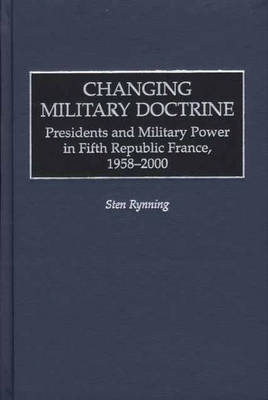As Rynning shows, armed forces have a natural interest in shaping military doctrine according to their resources, doctrinal traditions, as well as their assessment of the international environment. However, armed forces are also the instrument of policy-makers who are in charge of national security. Using civil-military relations in France from 1958 to the present as a case study, he shows when policy-makers are capable of controlling military doctrine as well as the means armed forces rely on to influence doctrine.
Some scholars argue that policy-makers can control military doctrine only when the international environment is threatening--a situation granting them added decision-making authority. Others argue that such control ultimately depends on the degree of domestic political disagreement/consensus. With access to most of the leading military personnel and policy-makers of the era, Rynning provides an analysis that will be instructive to scholars as well as policy-makers and military leaders concerned with contemporary civil-military relations.
- ISBN10 0275972860
- ISBN13 9780275972868
- Publish Date 30 October 2001 (first published 1 January 2001)
- Publish Status Active
- Publish Country US
- Publisher ABC-CLIO
- Imprint Praeger Publishers Inc
- Format Hardcover
- Pages 256
- Language English
